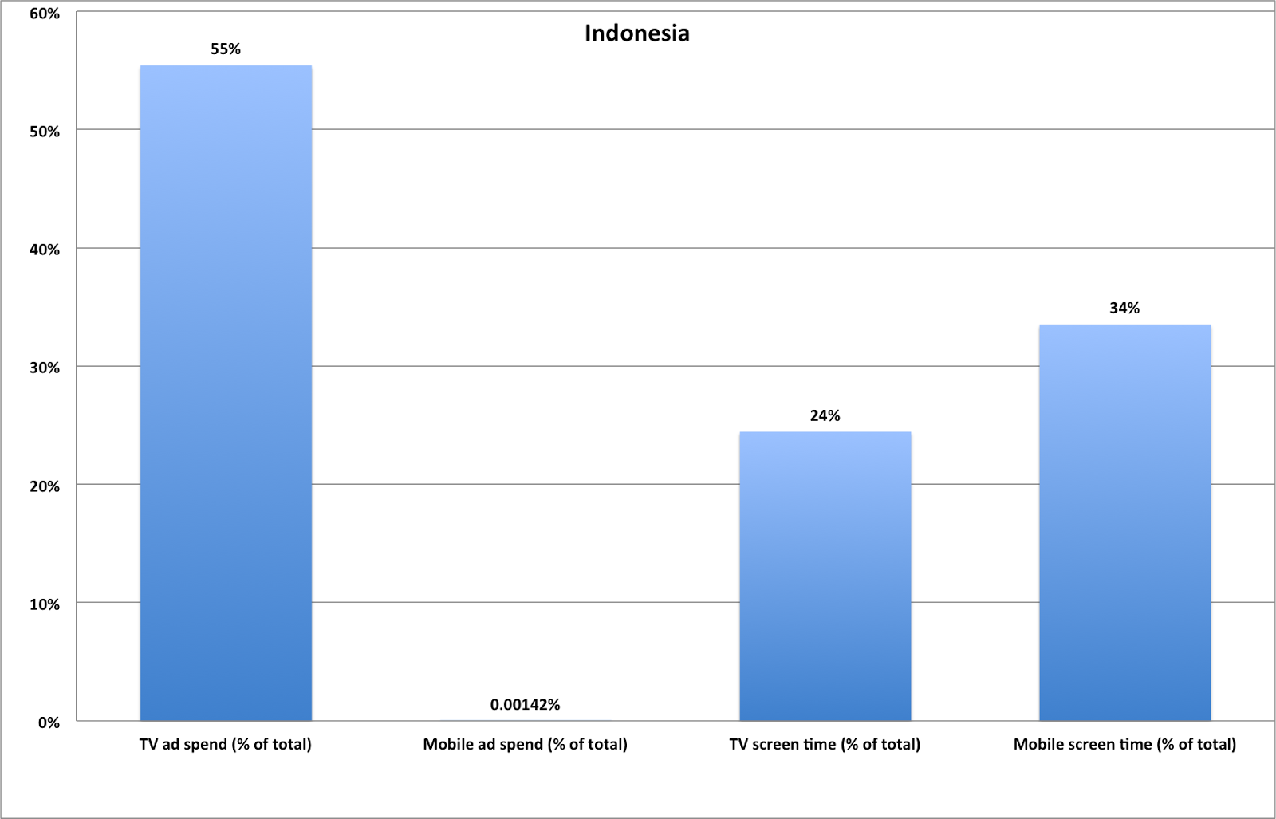The $80 billion advertising opportunity


Get involved with our crowdsourced digital platform to deliver impact at scale
Stay up to date:
Trade and Investment
“Generals always prepare for the last war, especially if they have won it”: an old adage that could well have been written for the advertising industry as it looks ahead to 2015. This year, in the midst of the greatest upheaval in the history of media, hundreds of billions of dollars will be spent on TV spots and radio jingles in emerging markets, while an $80 billion mobile advertising opportunity goes to waste.
Forget the traditional advertising model. The smartphone has replaced the television as the primary screen of emerging markets. Eighty billion dollars is the cost to an industry that has not yet acted on the scale of the mobile opportunity in the world’s fastest-growing markets.
Advertisers are fighting the “last war,” expecting that upwardly mobile consumers in emerging markets attach the same importance to television advertising as their predecessors in the global middle class.
This is not the case. The media consumption habits of a middle class consumer of Jakarta in 2015 will be very different from his counterpart in, say, 1985 Tokyo or 2005 Chicago.
This discrepancy between ad spend and screen time is common across the world’s most dynamic emerging markets.
The advertising industry is waking up gradually to the power of mobile. Globally, mobile advertising is expected to contribute over an $31.5 billionincrease in ad spend up to 2016, but the dominance of traditional advertising is still great. While mobile Internet will contribute 7.6 percent of global ad spend, TV will contribute 39.2 percent.
By ignoring mobile, advertisers are failing to connect with the consumers that will drive consumption over the next decade. By 2025, emerging markets are expected to contribute approximately half of the world’s global spending — about $30 trillion.
In order to be prepared for this enormous commercial opportunity, marketers should structure their budgets to represent the media habits of the emerging global middle class. New opportunities in mobile enable them to do so in a much more effective and measurable way relative to traditional advertising.
Until that change is realized, advertisers will continue to fight a losing battle of reaching the world’s “next billion”.
This article is published in collaboration with Medium. Publication does not imply endorsement of views by the World Economic Forum.
To keep up with Forum:Agenda subscribe to our weekly newsletter.
Author: Nathan Eagle is an American technology executive. He is co-founder and CEO of Jana, a mobile phone developer.
Image: Men are silhouetted against a video screen as they pose with smartphones in this photo illustration taken in the central Bosnian town of Zenica, May 17, 2013. REUTERS/Dado Ruvic.
Don't miss any update on this topic
Create a free account and access your personalized content collection with our latest publications and analyses.
License and Republishing
World Economic Forum articles may be republished in accordance with the Creative Commons Attribution-NonCommercial-NoDerivatives 4.0 International Public License, and in accordance with our Terms of Use.
The views expressed in this article are those of the author alone and not the World Economic Forum.
The Agenda Weekly
A weekly update of the most important issues driving the global agenda
You can unsubscribe at any time using the link in our emails. For more details, review our privacy policy.
More on Trade and InvestmentSee all
Mariam Soumaré
March 28, 2024
Spencer Feingold
March 22, 2024
Victoria Masterson
March 20, 2024
Andrea Willige
March 19, 2024
Weekend reads: Our digital selves, sand motors, global trade's choke points, and humanitarian relief
Gayle Markovitz
March 15, 2024
Simon Torkington
March 15, 2024








